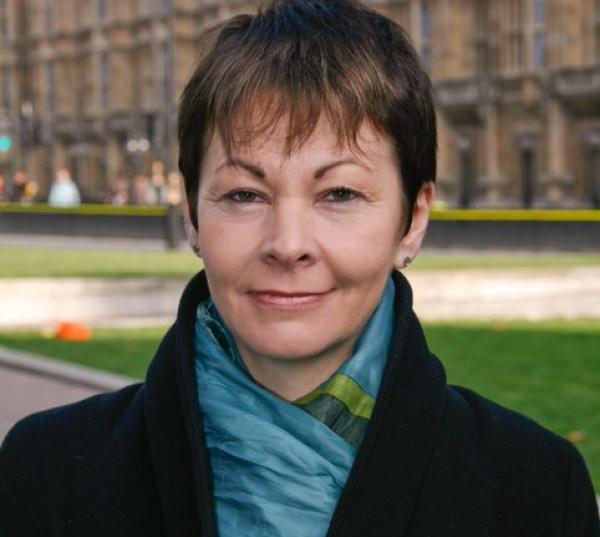Blueprint for a Green Recovery
Written by Caroline Lucas MP

It was little more than a year ago that Parliament declared a climate emergency. The following month, legislation was passed requiring the Government to reduce the UK’s emissions of greenhouse gases to net zero by 2050. Nowhere near ambitious enough, but significant nonetheless.
While the Government struggles with its response to a global health crisis, even that ambition has been side-lined. Ministers’ focus is now on how to relax the lockdown while protecting public health. But pressing the re-start on the economy is exactly the moment when the Government should turn its attention to those climate ambitions and bring forward the date for reaching net zero.
As the IPPR’s Environmental Justice Commission (of which I am co-chair) has set out in a recent report, we need to move ‘Further, Faster and Fairer’ to tackle the climate and nature crises while ensuring a just transition so that no-one is left behind.
That means putting social and economic justice at the heart of the transition to net zero and the restoration of nature. Policymakers must listen to, and design policies around, those communities and businesses which will be most impacted by decarbonisation.
With the sharp increase in the numbers of people without a job and the collapse in economic activity, the drive will be for economic growth at all costs. But when we are committed to decarbonising our economy, green investment is the only way to support economic recovery and create jobs.
As Lord Debden of the Committee on Climate Change has said: “There is every advantage in [restarting our economy] in a clean, green, resilient way and every disadvantage in trying to go back to a world which we know is not sustainable.”
What does this mean in practice? To start, the Government must set strict climate conditions on any bailouts so companies which are driving the climate crisis, and seeking government support, should be required to commit to targets and strategies in line with the Paris Agreement – as well as pay their taxes.
Next, it should address the energy inefficiency of our homes. The UK has some of the leakiest homes in Europe, accounting for 15% of the UK’s greenhouse gas emissions. Progress towards reducing those emissions has stalled.
More than 10% of households live in fuel poverty with people having to choose between staying warm or putting food on the table.
Both these failings can be addressed with a Government-led programme to insulate and retrofit all existing homes, starting with the most vulnerable households, and requiring all new homes to meet the highest energy standards, with power from renewable resources and heat pumps to replace gas heating.
It should begin with a directly-supported retrofit programme for vulnerable households and a national retrofit fund for social housing. A distributed programme of public expenditure could also drive energy retrofits in owner-occupied homes, using a network of accredited surveyors and installers. A training scheme should be designed and prepared now to make sure people have the skills required to transform our outdated housing stock.
This programme would not only cut energy bills, it would also create thousands of skilled jobs across the country and tackle a major source of greenhouse gas emissions.
It’s not only the moment for new investments. The Government should also be going back to the drawing board on past commitments, starting with its £27 billion budget for roads. With even the AA predicting a permanent reduction in the demand for car travel, this money would be better spent on making streets safe, providing space for walking and cycling.
Reduced traffic in our cities has cut air pollution, resulting in clearer skies and air that’s fit to breathe. It is vital that these gains from the lockdown are maintained, particularly as research points to higher death rates from Covid-19 in polluted areas.
We need a green recovery because that means a more resilient recovery. It means cleaner air and improved public health so we are better prepared for any future pandemic. It means good quality jobs and comfortable homes, to reduce deep inequalities in our society. And it means a sustainable economy powered by renewable energy so we stop fuelling the climate emergency.
Caroline Lucas is the Green Party MP for Brighton Pavilion and a Vice Chair of PRASEG.
